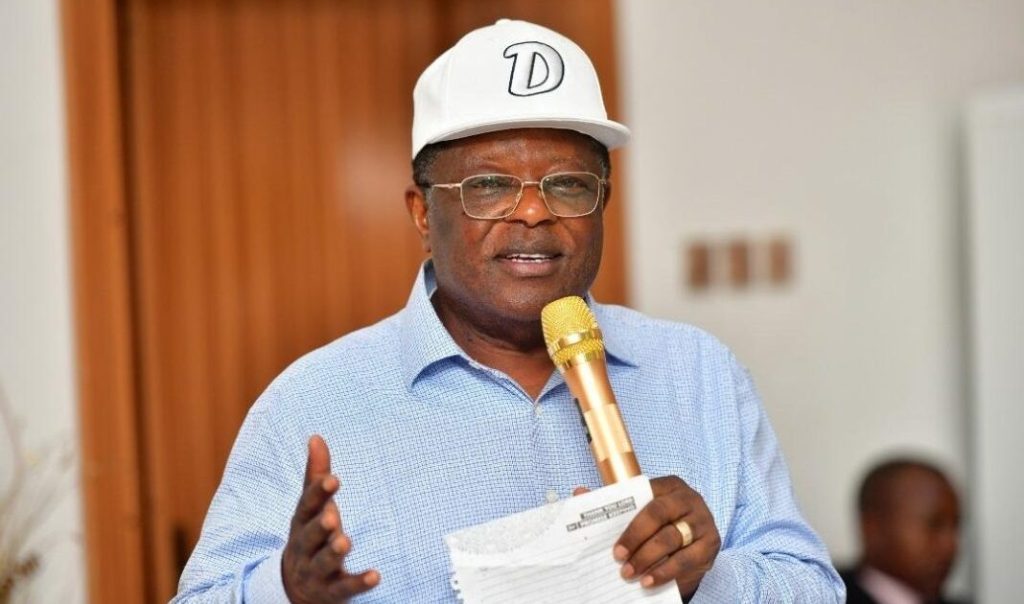The Nigerian Federal Government, under the leadership of President Bola Tinubu, has reaffirmed its commitment to finalize the construction of the East-West Road, a critical infrastructure project traversing the Niger Delta region. The current focus is on completing the third phase of the project, specifically the 15-kilometer dual concrete carriageway stretching from Eleme to Onne in Rivers State. This crucial segment, according to Minister of Works Dave Umahi, is slated to open to traffic within ten days, marking a significant milestone in the overall project timeline. The announcement, disseminated through a statement by President Tinubu’s personal assistant, Kamorudeen Yusuf, underscores the administration’s dedication to delivering impactful infrastructure that fosters economic growth and enhances national connectivity.
The Eleme-Onne section of the East-West Road represents a vital link within the larger project, facilitating access to critical industrial hubs, including refineries, petrochemical plants, and export terminals. Its completion is expected to significantly boost economic activity in the region, streamline transportation logistics, and enhance the overall efficiency of these vital sectors. However, while the immediate goal is to open this section to vehicular traffic, the government has outlined further plans to complete the remaining structural elements, encompassing flyovers and bridges. This comprehensive approach aims to ensure the long-term viability and durability of the road infrastructure, minimizing future maintenance requirements and maximizing its economic impact. This work is projected to be completed during the dry season, leveraging favorable weather conditions for optimal construction efficiency.
Looking ahead, the government has also committed to resuming work on the Port Harcourt-bound section of the East-West Road by June 1, 2025. This segment forms a critical part of the larger N156 billion project, emphasizing the government’s investment in creating a robust and integrated transportation network within the Niger Delta. The project’s comprehensive scope extends beyond mere road construction, incorporating advanced features such as reinforced concrete, solar lighting, CCTV surveillance, tolling points, and strategically placed rest areas. These elements reflect a forward-thinking approach to infrastructure development, ensuring the project’s sustainability and resilience for generations to come.
The East-West Road project isn’t just about constructing a physical roadway; it symbolizes a strategic economic corridor designed to unlock the vast potential of the Niger Delta region. By connecting key industrial and commercial centers, the project seeks to stimulate economic growth, create employment opportunities, and improve the quality of life for residents. The road’s enhanced connectivity will facilitate the movement of goods and services, reduce transportation costs, and enhance trade within and beyond the region. Moreover, the project is expected to contribute to national cohesion by strengthening inter-regional connections and fostering a sense of shared prosperity.
The government’s commitment to long-term infrastructure development is reflected in the design and construction of the East-West Road. The use of durable materials like reinforced concrete, coupled with the incorporation of advanced technologies like solar lighting and CCTV, underscores a commitment to building sustainable infrastructure that requires minimal maintenance and delivers long-term value. These features are designed to ensure the road remains functional and efficient for 50 to 100 years, serving as a lasting legacy of the current administration’s infrastructure vision. This approach represents a paradigm shift from previous practices, moving away from temporary fixes towards building enduring solutions that can withstand the test of time and contribute to sustainable development.
President Tinubu’s administration views the East-West Road as a pivotal project, demonstrating its commitment to transformative infrastructure development. The project embodies a strategic vision that prioritizes long-term value, economic growth, and national unity. By investing in durable, technologically advanced, and economically impactful infrastructure, the government aims to leave a lasting legacy of progress and development for future generations. The project’s successful completion will not only enhance transportation efficiency within the Niger Delta but also contribute to a more connected and prosperous Nigeria. The East-West Road stands as a testament to the government’s commitment to building a better future for its citizens through strategic and sustainable infrastructure development.


